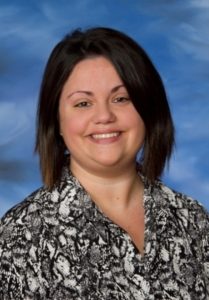
By Dr. Sarah Phillips,
Medical Director
Aging is Human
As a follow-up to an article I wrote earlier this year, “Dying is Human,” I felt compelled to share some thoughts and observations around the aging process. I am a board certified geriatrician in addition to my role as a Hospice and Palliative Care Medical Director. I have been working with the aging and elderly for the past decade or more. This work has been an honor and a privilege. One of the most challenging aspects I have observed in the aging population is loss of control and independence. Old age is a relentless series of loss. How do we as a society promote the well-being of this precious and vulnerable population?
A patient recently shared this about the impact of his illness, “This is just no way to live, I know this is a process, but it is taking my strength, manliness, and pride.” I was struck by the insight and articulation of this statement. Life is indeed a process, a process of growing, learning, experiencing, and the ever-present constant of change.
With advancement in medicine, research, environmental factors, and technology the human lifespan in the United States has doubled in the past 160 years. Science has given us longevity but not immortality. We are living long enough to experience the mental, physical, and emotional challenges of an aging body. This mind, body, and soul require specialized attention, approach, and care.
Atul Gawande, author of “Being Mortal: Medicine and What Matters in the End,” writes:
“Being mortal is about the struggle to cope with the constraints of our biology, with the limits set by genes and cells and flesh and bone. Medical science has given us remarkable power to push against these limits. But again and again, I have seen the damage we in medicine do when we fail to acknowledge that such power is finite and always will be. We’ve been wrong about what our job is in medicine. We think our job is to ensure health and survival. But really it is larger than that. It is to enable well-being. And well-being is about the reasons one wishes to be alive. Those reasons matter not just at the end of life, or when debility comes, but all along the way.”
I have found this to be true in my own journey as a physician and the idea of applying the practice of medicine in a different way inspired me to become a geriatrician. Beyond that, I have learned and embraced the practice of palliative care and consider it to be one of the greatest resources for the aging population.
A few years ago, I was interviewing physicians about the need for palliative care in our community. I will never forget a local family practice physician telling me about one of her patients. The patient was a 90-something-year-old woman with terrible arthritis. The pain and debility essentially left her homebound. Her only option to address her pain was going to a pain management clinic for injections. I remember thinking to myself, this cannot be the only option for this lady. Not only would it not likely be effective in managing her severe and generalized pain, but it meant another doctor, more appointments, and further fragmentation of her care. Is this promoting quality of life? My answer was no.
Since this time, the Panhandle Palliative Services (PPS) program was launched and continues to grow. This year marks two years that PPS has been inexistence. You might think of PPS as a subsidiary of hospice – the program falls under the Hospice of the Panhandle umbrella, but PPS patients are NOT hospice patients. The focus of the program is to promote quality of life for those facing life-limiting conditions. The providers visit patients in their homes and coordinate/communicate with other physicians involved in the care. Attention to safety, environment, medications, unmanaged symptoms, advanced care planning are some of the key elements of the program. Often these patients and their families/caregivers are in need of resources such as in-home sitters, transportation, long-term facility placement, Meals on Wheels, just to name a few. The palliative team can help make these connections. The goal is to help people maintain as much control, independence, and quality of life on their own terms.
Lastly, I believe that one of the most powerful benefits of utilizing palliative services is access to medical professionals highly trained in helping people navigate loss. Loss of mobility, loss of sight, loss of hearing, loss of independence, loss of memory, loss of energy, loss of friends, loss of dignity. The losses start well before the loss of life. Learning how to cope with such changes promotes the mental and emotional well-being of those facing these challenges.
Another insight from Dr. Gawande:
“People with serious illness have priorities besides simply prolonging their lives. Surveys find that their top concerns include avoiding suffering, strengthening relationships with family and friends, being mentally aware, not being a burden on others, and achieving a sense that their life is complete.”
If you or someone you know may benefit from palliative services, I highly encourage you to reach out and see how we can help. Call (304) 264-0406 and ask for information about Panhandle Palliative Services.
Dr. Sarah Phillips has been medical director at Hospice of the Panhandle since February 2013. She holds a certification as a hospice medical director. Hospice is a not-for-profit agency that has cared for patients and families with life-limiting illnesses in Berkeley, Morgan, Hampshire and Jefferson counties since 1980. Panhandle Palliative Services has been operating since 2021. For more information on how hospice or palliative care can help you or your family, call (304) 264-0406, or visit on-line at www.hospiceotp.org
